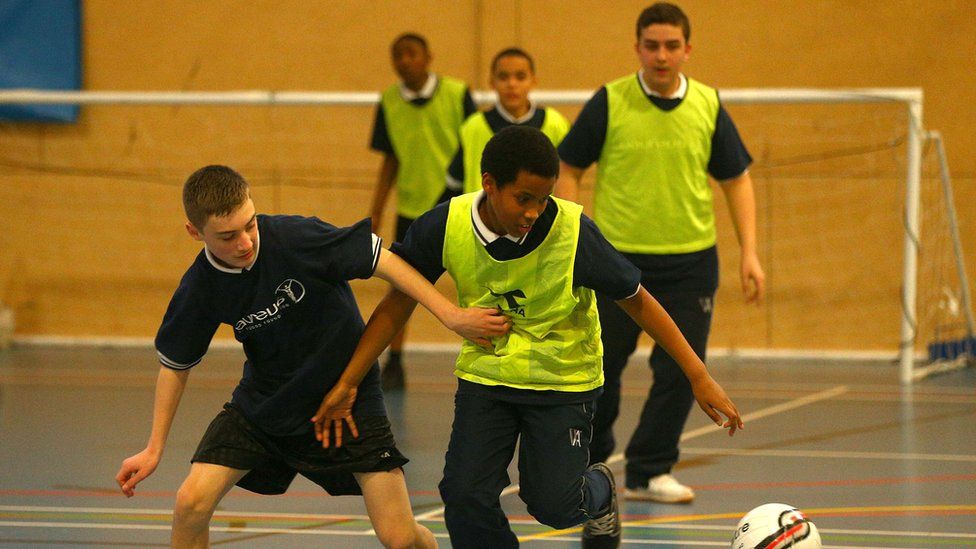MPs question government's 'grip' on new school places
- Published
- comments

MPs have questioned "how much of a grip" the Department for Education has on providing school places where they are needed in England.
The system is "increasingly incoherent and too often poor value for money," says the Public Accounts Committee.
And the government is spending "well over the odds" on free schools while other schools are in poor condition, says the cross-party committee.
Ministers say free schools are key to meeting demand for school places.
The government has pledged to open 500 more free schools, which are state-funded but independently run, by 2020 and has plans for a further 110.
The MPs' investigation builds on a National Audit Office report in February which said billions were being spent on free schools while many existing school buildings were crumbling.
The NAO said this was a "significant risk to long-term value for money".
The MPs agree that having enough school places in safe, high-quality buildings, where they are needed, is crucial.
"Without this, parents may have less choice, pupils may have inconvenient journeys to school and the learning environment may be less effective, putting educational outcomes at risk," they say.
'Spare capacity'
They note that last year the DfE provided £4.5bn to maintain and improve school buildings but will face "significant challenges over the next few years" as buildings age.
In addition, 420,000 new school places will be needed by 2021, many in secondary schools where provision is more expensive than at primary level.
They note that while free schools are helping to meet the need for new school places in some areas, they are creating spare capacity in others, in some cases 20% over what is needed.
"In the context of severe financial constraints, it is vital that the department uses its funding in a more coherent and cost effective way," say the MPs, who add that they "remain to be convinced" that meeting the government's free schools target "is the best use of the limited funds available".
They say too many free schools are in unsuitable temporary buildings, lacking outside space and sports facilities.
They urge the DfE "to work effectively with local authorities to understand local demand for school places".
Committee chairwoman Meg Hillier said the free schools programme was "diverting a lot of money" from school maintenance.
"What we want to see is a much more balanced programme of capital funding so that existing poor school buildings get the funding and investment they need and those new schools are built, as well as whatever the government chooses to do on the free schools programme.
"At the moment one is skewing the other."
Geoff Barton, general secretary of the Association of School and College Leaders, said the report reflected head teachers' concerns.
"Creating surplus places is an inefficient use of public money and damages existing schools where spare capacity is created," said Mr Barton.
The DfE said it would consider the report carefully and respond in due course.
The government says more than three-quarters of the free schools approved were in areas where new places were needed and the vast majority were rated good or outstanding by Ofsted.
But Kevin Courtney, general secretary of the National Union of Teachers, said: "Free schools do not address the school-place crisis, often being built in areas of no need and often in unsuitable premises.
"This policy is not evidenced based and is nothing to do with the wellbeing of children or providing a sound education."
Angela Rayner, shadow education secretary, said the Public Accounts Committee had concluded that the free school programme was incoherent and inefficient.
"In the recent Budget, the chancellor announced plans that would only create one-sixth of the school places we will need by 2021, and even those plans were drastically underfunded," she said.
- Published22 February 2017
- Published11 May 2016